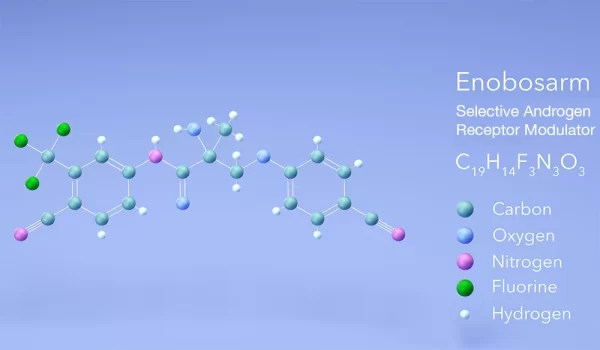Testosterone is a hormone primarily produced in the testicles of men and, to a lesser extent, in the ovaries of women. It plays a vital role in the development of male reproductive tissues, such as the testes and prostate, as well as promoting secondary sexual characteristics like increased muscle and bone mass. Testosterone is essential for overall health and well-being, and maintaining optimal levels is crucial for both men and women.
In this article, we will discuss how to optimize testosterone levels through diet and exercise. We will provide practical guidelines and tips to help you make the necessary lifestyle changes for improved hormonal balance and overall health.
Dietary Factors for Optimal Testosterone Levels
-
Adequate dietary fat intake
Dietary fat is essential for hormone production, including testosterone. Studies have shown that low-fat diets can lead to decreased testosterone levels. It is crucial to consume healthy fats, including monounsaturated fats (MUFAs), polyunsaturated fats (PUFAs), and saturated fats. Good sources of healthy fats include:
- Avocados
- Nuts (almonds, walnuts, pistachios)
- Seeds (chia seeds, flaxseeds, pumpkin seeds)
- Olive oil
- Fatty fish (salmon, mackerel, sardines)
- Coconut oil
-
Balanced macronutrient intake
Macronutrients – carbohydrates, proteins, and fats – should be consumed in balanced proportions to support optimal hormone production. While individual macronutrient needs may vary, a general guideline is to aim for the following distribution:
- 40-50% carbohydrates
- 25-35% fats
- 25-30% protein
-
Prioritize protein
Protein is a vital component of a testosterone-boosting diet. Adequate protein intake supports muscle growth, recovery, and overall health. High-quality protein sources include:
- Lean meats (chicken, turkey, lean beef)
- Fish and seafood (salmon, shrimp, tuna)
- Eggs
- Dairy products (Greek yogurt, cottage cheese)
- Plant-based proteins (tofu, tempeh, legumes, and beans)
-
Consume micronutrient-rich foods
Certain vitamins and minerals play a crucial role in testosterone production. Ensure you consume foods rich in the following micronutrients:
- Zinc: Oysters, beef, pumpkin seeds, cashews
- Vitamin D: Fatty fish, egg yolks, fortified dairy products, and sunlight exposure
- Magnesium: Spinach, almonds, dark chocolate, avocados
-
Limit processed foods and refined sugars
Processed foods and refined sugars are associated with increased inflammation, obesity, and hormonal imbalances. Limit your intake of these foods and opt for whole, unprocessed foods instead.
Exercise Strategies for Optimal Testosterone Levels
-
Resistance training
Strength training is one of the most effective ways to stimulate testosterone production. Incorporate compound exercises, such as squats, deadlifts, bench presses, and rows, into your workout routine for maximum benefits. Aim to train with moderate to heavy weights and perform 3-4 sets of 6-12 repetitions for each exercise.
-
High-Intensity Interval Training (HIIT)
HIIT involves alternating between periods of intense exercise and short recovery breaks. This type of training is highly effective for boosting testosterone levels, as well as improving cardiovascular health and fat loss. To perform a HIIT workout, choose any form of cardio (such as sprinting, cycling, or rowing) and alternate between 30-60 seconds of all-out effort and 60-90 seconds of low-intensity recovery. Repeat for a total of 20-30 minutes.
-
Moderate, consistent aerobic exercise
While excessive endurance training may decrease testosterone levels, moderate aerobic exercise can have a positive impact on hormone production. Aim to include 30-60 minutes of moderate-intensity cardiovascular exercise, such as brisk walking, swimming, or cycling, 3-5 times per week.
-
Adequate recovery and rest
Overtraining can lead to decreased testosterone levels and an increased risk of injury. Make sure to prioritize recovery by incorporating rest days, getting sufficient sleep, and practicing stress management techniques like meditation, yoga, or deep breathing exercises.
-
Maintain a healthy body weight
Being overweight or obese can negatively affect testosterone levels. Engaging in regular exercise and following a healthy, balanced diet will help you achieve and maintain a healthy body weight, which is essential for optimal hormone production.
Additional Lifestyle Factors
-
Get sufficient sleep
Sleep is critical for overall health, and it’s particularly important for hormone production. Aim for 7-9 hours of quality sleep per night to support optimal testosterone levels.
-
Manage stress
Chronic stress can lead to decreased testosterone production, as well as other negative health effects. Incorporate stress-reducing activities into your daily routine, such as meditation, deep breathing exercises, or spending time in nature.
-
Limit alcohol and tobacco consumption
Excessive alcohol and tobacco consumption can impair testosterone production. If you choose to consume alcohol, do so in moderation, and consider quitting smoking to support optimal hormone levels.
-
Stay hydrated
Dehydration can negatively impact hormonal balance and overall health. Ensure you drink enough water throughout the day, particularly before, during, and after exercise.
Conclusion
Optimizing testosterone levels requires a multifaceted approach that includes a balanced diet, regular exercise, and a healthy lifestyle. By incorporating the dietary and exercise strategies outlined in this article and addressing other lifestyle factors, such as sleep and stress management, you can support optimal hormone production and overall well-being.
Remember, individual needs and responses to various interventions may vary, and it’s essential to consult with a healthcare professional before making significant changes to your diet or exercise routine. By working closely with a qualified expert, you can develop a personalized plan to optimize your testosterone levels and improve your overall health.
Below are a few reputable sources and studies that support the information provided in the article:
- Dietary fat intake and testosterone levels:
- Volek, J. S., Kraemer, W. J., Bush, J. A., Incledon, T., & Boetes, M. (1997). Testosterone and cortisol in relationship to dietary nutrients and resistance exercise. Journal of Applied Physiology, 82(1), 49-54. Link
- Balanced macronutrient intake:
- Helms, E. R., Aragon, A. A., & Fitschen, P. J. (2014). Evidence-based recommendations for natural bodybuilding contest preparation: nutrition and supplementation. Journal of the International Society of Sports Nutrition, 11(1), 20. Link
- Protein intake and testosterone levels:
- Anderson, K. E., Rosner, W., Khan, M. S., New, M. I., Pang, S. Y., Wissel, P. S., & Kappas, A. (1987). Diet-hormone interactions: protein/carbohydrate ratio alters reciprocally the plasma levels of testosterone and cortisol and their respective binding globulins in man. Life Sciences, 40(18), 1761-1768. Link
- Micronutrients and testosterone levels:
- Prasad, A. S., Mantzoros, C. S., Beck, F. W., Hess, J. W., & Brewer, G. J. (1996). Zinc status and serum testosterone levels of healthy adults. Nutrition, 12(5), 344-348. Link
- Pilz, S., Frisch, S., Koertke, H., Kuhn, J., Dreier, J., Obermayer-Pietsch, B., … & Zittermann, A. (2011). Effect of vitamin D supplementation on testosterone levels in men. Hormone and Metabolic Research, 43(03), 223-225. Link
- Resistance training and testosterone levels:
- Kraemer, W. J., & Ratamess, N. A. (2005). Hormonal responses and adaptations to resistance exercise and training. Sports Medicine, 35(4), 339-361. Link
- HIIT and testosterone levels:
- Herbert, P., Hayes, L. D., Sculthorpe, N. F., & Grace, F. M. (2017). HIIT produces increases in muscle power and free testosterone in male masters athletes. Endocrine Connections, 6(7), 430-436. Link
- Sleep and testosterone levels:
- Leproult, R., & Van Cauter, E. (2011). Effect of 1 week of sleep restriction on testosterone levels in young healthy men. JAMA: The Journal of the American Medical Association, 305(21), 2173-2174. Link
- Stress and testosterone levels:
- Cumming, D. C., Quigley, M. E., & Yen, S. S. (1983). Acute suppression of circulating testosterone levels by cortisol in men. The Journal of Clinical Endocrinology & Metabolism, 57(3), 671-673. Link
- Alcohol consumption and testosterone levels:
- Välimäki, M. J., Härkönen, M., Eriksson, C. J., & Ylikahri, R. H. (1984). Sex hormones and adrenocortical steroids in men acutely intoxicated with ethanol. Alcohol, 1(1), 89-93. Link
- Tobacco consumption and testosterone levels:
- English, K. M., Pugh, L. C., Parry, H., Scutt, N. E., Channer, K. S., & Jones, T. H. (2001). Effect of cigarette smoking on levels of bioavailable testosterone in healthy men. Clinical Science, 100(6), 661-665. Link
- Hydration and testosterone levels:
- Stachenfeld, N. S. (2008). Hormonal changes during exercise-induced dehydration. The Physician and Sportsmedicine, 36(1), 75-85. Link
These sources provide evidence for the various diet, exercise, and lifestyle factors mentioned in the article. It’s essential to keep in mind that individual responses may vary, and it’s always a good idea to consult with a healthcare professional before making significant changes to your diet, exercise, or lifestyle habits.




